5 Tips for Keeping Your Pet's Teeth Clean, From Daily Brushing to Annual Professional Cleanings
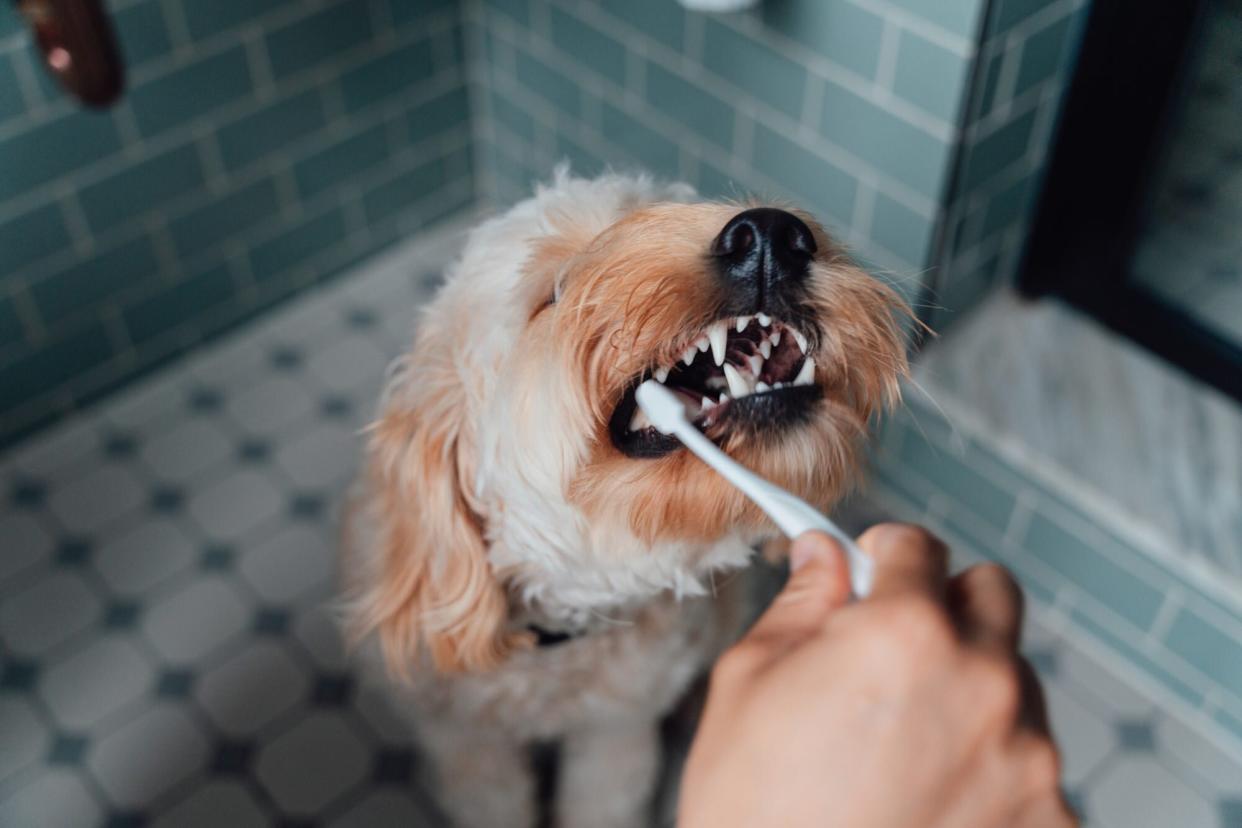
Oscar Wong / Getty Images
Sometimes it can feel like a chore to brush and floss our own teeth on a daily basis—let alone those belonging to our pets, who, let's be honest, probably don't love it either. But keeping our own teeth clean prevents cavities, periodontal disease, and other diseases, and the same goes for our pets.
The most important thing pet parents can do for their pets' dental health is brushing their teeth daily, Mondrian Contreras, DVM and Pumpkin Pet Insurance's veterinary expert, tells Daily Paws. "It can help pets live longer as well as prevent chronic pain, chronic inflammation, and periodontal disease associated with heart, kidney, and liver disease," he says.
February is Pet Dental Health Month, so what better time to start building those brushing habits than today? Here are five tips to keep your pet's teeth clean and disease at bay.
1. Make Brushing a Lifelong Habit
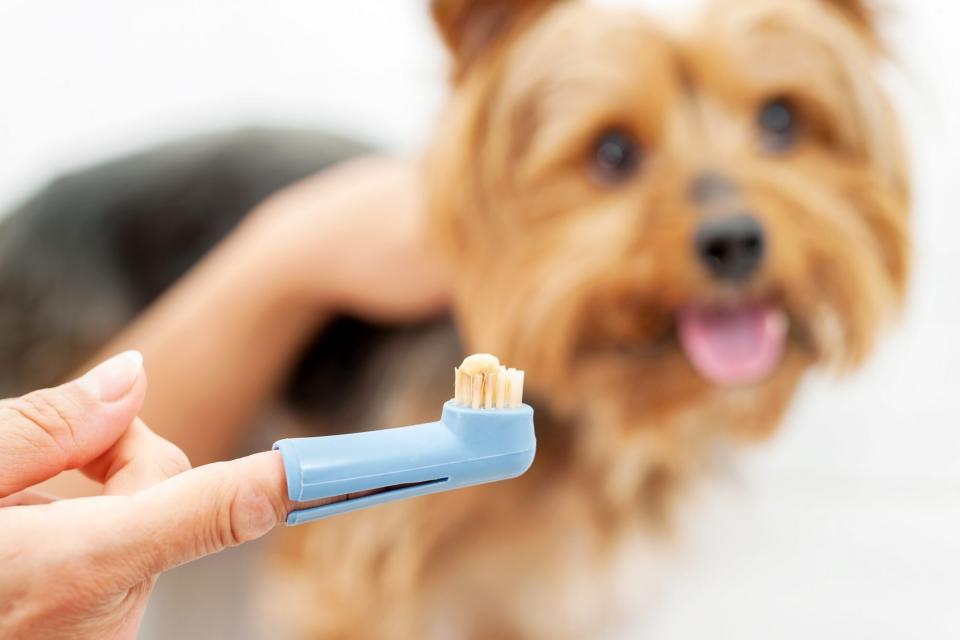
karelnoppe / Getty
While Contreras says the best time to start brushing is during the puppy and kitten years, now is the second-best time. Keep the toothbrush and toothpaste in an accessible spot and do it at the same time every day to build the habit—like right after you brush your own teeth.
The most important thing about brushing is making it positive for your pet rather than a stressful, scary experience. Contreras says to start slowly, introducing the toothbrush and pet-specific toothpaste briefly, starting with brushing just the front teeth. Once your pet is comfortable with that, work your way to the back teeth. Always finish brushing with something your pet really loves, like playing with their favorite toy or giving them a super tasty treat.
Plaque and calculus can start forming in as little as 24 hours, which is why daily brushing is so important. Here's more instructions and veterinarian tips on how to brush your dog's teeth and your cat's teeth.
2. Don't Miss Annual Dental Exams
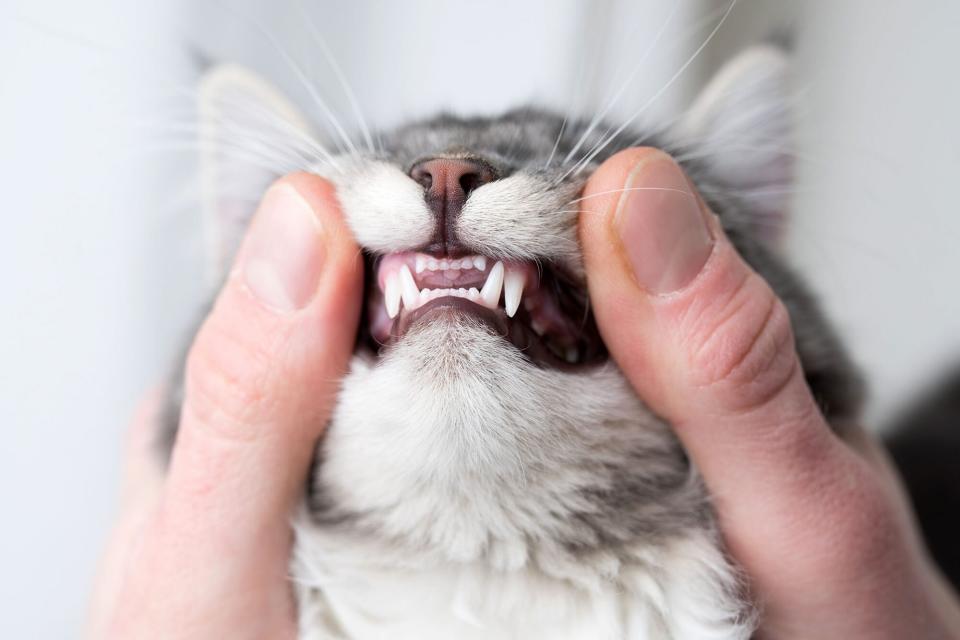
Nils Jacobi / Getty
Annual veterinary appointments are so important for not just monitoring your pet's overall health but the health of their teeth as well. "Talking about your pet's dental health should be a yearly discussion with your veterinarian," Contreras says. Bring up any concerns you have so your vet can perform a thorough exam and catch any issues before they became something bigger. The combination of daily brushing at home, annual veterinary checkups, and professional cleanings is the best way to keep your pet's chompers healthy for life.
3. Monitor Their Teeth at Home
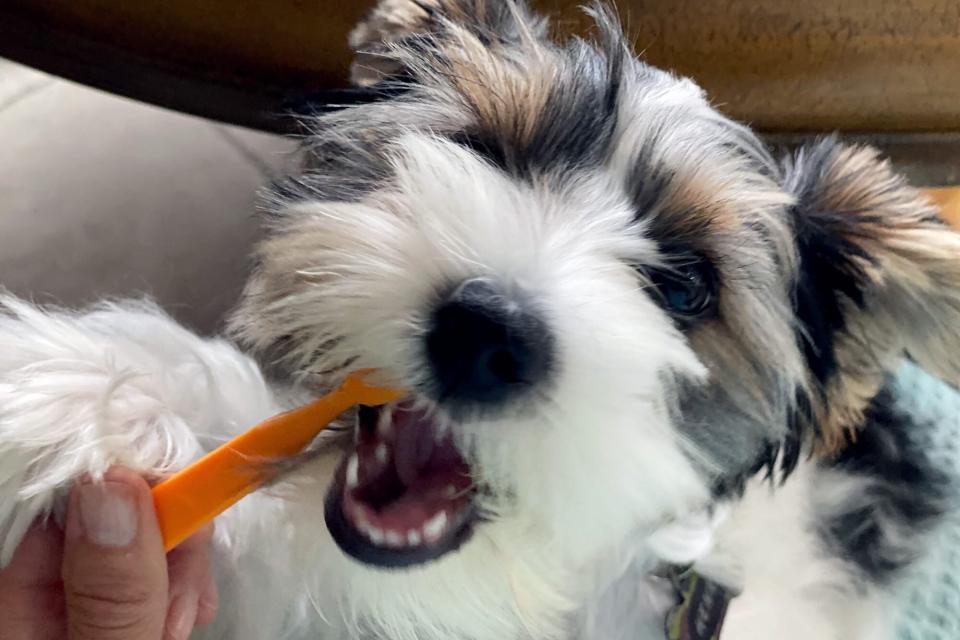
Debra Porter / Getty
You are your pet's biggest health advocate, and it's up to you to monitor their health and behavior and get them medical attention if anything seems off. Start a grooming routine where you periodically check out your pet's body, noticing any changes, lumps, or, ahem, smells that weren't there before. If you start to notice "doggie breath," Contreras says that's usually the first sign your pet could have periodontal disease or even tooth decay, and it's time to see the vet for a cleaning.
4. Prepare for the Cost of Professional Dental Cleaning
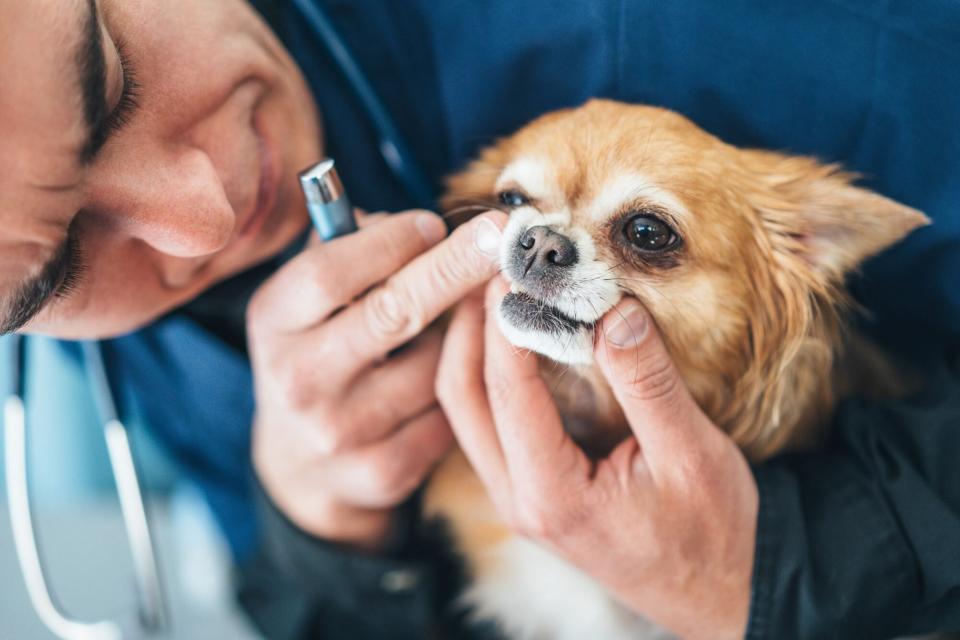
filadendron / Getty
Even if you brush every day at home, your pet can still benefit from professional cleaning. "As humans, we brush daily and still need to be seen every six to 12 months for a professional cleaning," Contreras says. "Brushing and home dental care are vital for great dental health for our pets too, but it doesn't replace your veterinarian evaluating your pet's oral health and regular professional dental cleaning."
The cost of professional dental cleaning can be prohibitive for many pet parents, so don't forget to budget for the procedure when thinking about your annual vet bills. Because pets have to go under anesthesia, it can be more expensive than you might think. If your pet needs extractions or anything more than a simple cleaning, expect that price go up.
While it can be scary to have your dog or cat go under anesthesia, Contreras says as long as the veterinary facility is taking the proper precautions to keep your pet safe, the procedure is safe and outweighs the risks that come with dental disease.
5. Don't Rely on Dental Chews, Treats, or Water Additives
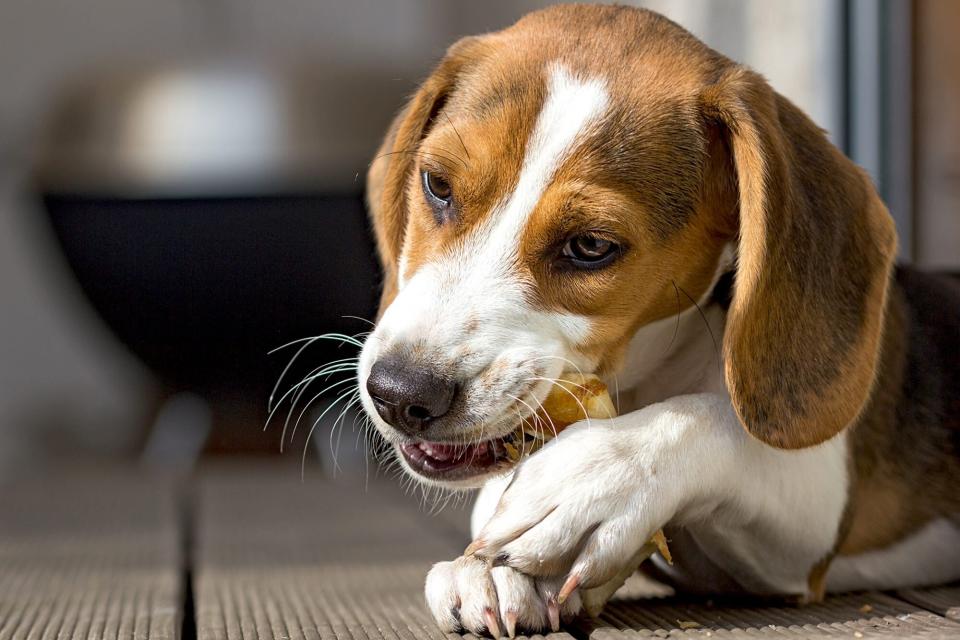
Christian Buch / Getty
As much as we would love to throw our dog a bone and call it a day, "there is very little benefit to dental diets, chews, and water additives—nothing takes the place of brushing," Contreras says. If your dog loves dental treats, you can still feed them on occasion, but just know that you still need to brush every day (and treats shouldn't account for more than 10 percent of your pet's daily caloric intake).

